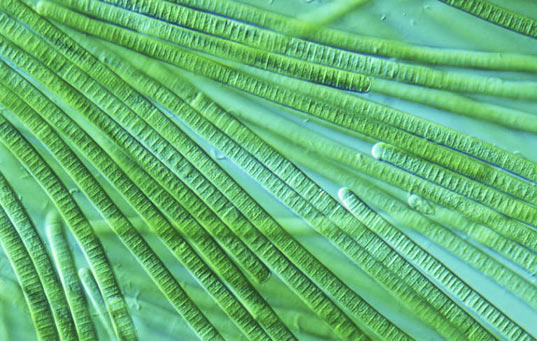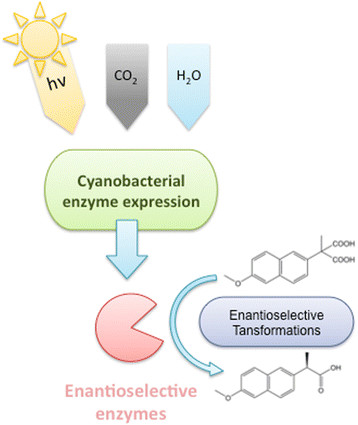Cyanobacteria Produce Industrial Enzymes Sustainably

Scientists from Ruhr-Universität Bochum (RUB) have successfully produced biocatalysts from cyanobacteria, microorganisms that only consume water, salts, CO2 and light. The finding, published in the journal Microbial Cell Factories, is a major step towards a sustainable chemical industry.
The global economy, based on ever-increasing production of goods, is bringing the natural system to its limit. Oil-based production and the depletion of many natural resources endanger the existence of human societies and ecosystems. In this context, greener alternatives that use renewable energy are sought after.
Natural and artificial enzymes are employed in the chemical industry as catalysts for chemical synthesis. They are commonly used in detergents and the food industry. Enzymes reduce the energy requirements for chemical reactions to happen. They also consume less resources and generate fewer by-products that conventional chemical processes. Biocatalysts use is therefore eco-friendly, but producing them can still be uneconomical. They are commonly generated by heterologous expression in bacterial systems. But a team of researchers from RUB decided to use cyanobacteria as “green cell factories”. Cyanobacteria do not need sugar a a source of carbon, they use carbon dioxide, so they do not compete with food production. Thus, the team tried photosynthetic enzyme production inserting the genes of two enantioselective enzymes in the cyanobacterium Synechocystis sp. The enzymes were produced with “excellent enantioselectivity and yield”, making cyanobacteria a more ecological alternative to E. coli. This proof-of-concept opens the door to using phototrophic organisms to produce chemicals and biofuels.
Source: nanowerk

